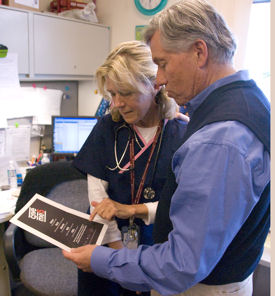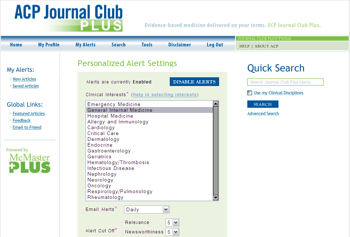Even rare inherited cancer syndromes lurk in your practice
Pop quiz: How many health care rating schemes are out there?.
Have you ever diagnosed someone with hereditary nonpolyposis colorectal cancer (HNPCC)? Most physicians would probably answer no. But do you have any patients at risk for HNPCC in your practice? For most providers the answer likely is yes—probably more than one. Recognizing those at risk could truly save lives.
HNPCC is likely the most common hereditary cancer syndrome, and causes about one in 20 cases of colorectal cancer. By my own admittedly “back of the envelope” estimate, the average primary care provider with a panel of 2,500 patients likely cares for three patients carrying a genetic change causing HNPCC.
The mutation confers an approximately 80% lifetime risk of developing colorectal cancer. Emerging data suggest that men who are mutation carriers for HNPCC may be at higher risk of colorectal cancer than women with the mutation. Often overlooked is that the mutation also contributes to the risk of developing other cancers, including an approximate 30% to 60% lifetime risk of endometrial cancer in women.
Cancers associated with HNPCC tend to occur earlier than sporadic cancers, under the age of 50 in many cases. The clinical presentation of HNPCC-associated colorectal cancer is often subtle, with few patients having any outward manifestation of the disorder. Frequently, the lesions are right-sided, so sigmoidoscopy is not an effective detection method. On colonocopy, affected individuals often have normal or near normal numbers of polyps, rather than the hundreds to thousands seen in familial adenomatous polyposis.

Evidence suggests that intervention starting in the patients' 20s with colonoscopy every one to two years can save lives in mutation carriers. Early endometrial cancer screening may also help these patients, though clear evidence of benefit is lacking. For those with colorectal cancer and HNPCC, subtotal colectomy is a consideration.
At this time, there are no data to support the use of genetic testing on a screening basis in unselected populations. How then can you identify individuals with HNPCC? One of the best approaches is to learn about your patient's family history.
Red flags that might prompt an internist to think about HNPCC include:
- early onset colorectal cancer or endometrial cancers in the patient and/or the patient's first-degree relatives,
- multiple adenomatous polyps and/or adenomatous polyps occurring at an early age in the patient and/or the patient's first-degree relatives,
- individuals with metachronous colorectal cancer,
- individuals with multiple cancers (for example both colon and endometrial cancer in the same person), and
- individuals whose family histories include multiple individuals with HNPCC-associated cancers (colorectal cancer, endometrial, ovarian, upper urinary tract, stomach, biliary tract, brain, small intestine). For more details click here.
Early involvement of a geneticist, gastroenterologist or surgeon will probably benefit. The decision to obtain genetic testing for an individual at risk for HNPCC is complex, and testing should only be done after obtaining informed consent. In itself, this is a reason to involve a specialist.
Complicating matters further is that there are now four known genes (hMLH1, hMSH2, hMSH6, and PMS2) that can cause HNPCC if mutated. Literally hundreds of mutations have been identified in each of these genes and, occasionally, gene alterations turn up that have never been clearly associated with disease.
Finally, management options for affected patients are evolving as data on HNPCC amasses. This makes it hard for a primary care provider to keep up with the latest advances relevant and very important to a small subset of their patient population.
It is complicated, and not every internist needs to plumb the full depths of knowledge about HNPCC. The first step, taking a family history, is something we are all familiar with. Do so, armed with the knowledge that patients with HNPCC really are in your practice—and maybe in your waiting room.





